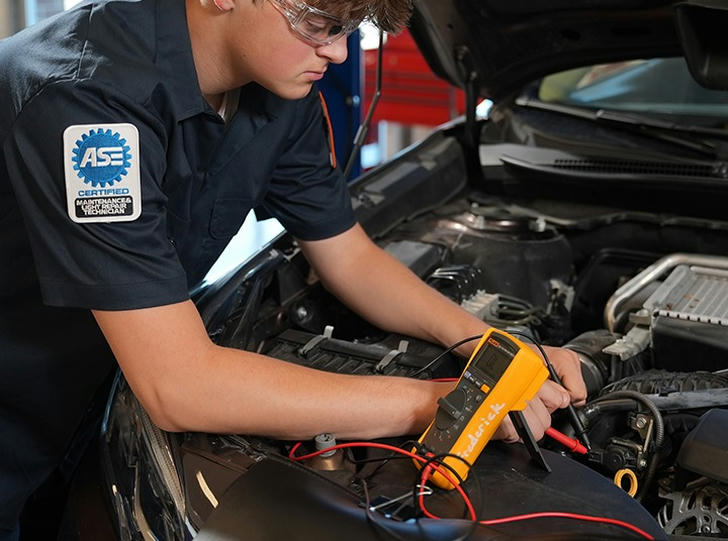Auto Repair Course: Unlocking a Career in Automotive Service
In the dynamic world of automotive repair, having the right skills and certifications can make all the difference. An auto repair course provides aspiring technicians with the knowledge and hands-on experience needed to excel in this field. This article will delve into the benefits of such courses, explore the certification process, and highlight a success story of someone who transformed their career through this training.

Introduction to Auto Repair Courses
Auto repair courses are designed to equip students with comprehensive knowledge of vehicle systems, diagnostic techniques, and repair methods. These programs typically cover a wide range of topics, including engine repair, transmission systems, electrical systems, and suspension and steering. By combining theoretical knowledge with practical training, students gain the skills necessary to diagnose and fix complex automotive issues.
Why Enroll in an Auto Repair Course?
A formal auto repair course provides structured learning, hands-on experience, and expert guidance, ensuring you gain the right skills to diagnose and fix vehicle problems efficiently. Here are some key benefits:
- Career Advancement: Gain qualifications for jobs in auto shops, dealerships, and even self-employment.
- Cost Savings: Learning auto repair can save thousands on maintenance and repair costs.
- Vehicle Knowledge: Understanding your car’s mechanics helps prevent breakdowns and prolongs its lifespan.
- Confidence and Independence: Knowing how to fix your own vehicle brings peace of mind, especially during emergencies.
Benefits of Auto Repair Courses
Hands-on Experience: These courses provide extensive hands-on training, allowing students to work directly with vehicles and gain practical experience.
Certification Opportunities: Many programs prepare students for industry-recognized certifications like the National Institute for Automotive Service Excellence (ASE) certifications, which are highly valued by employers.
Job Readiness: Graduates are well-prepared to enter the workforce immediately, with many programs offering job placement assistance.
Flexibility: Courses are often flexible, accommodating both full-time students and working professionals who want to enhance their skills.
ASE Certification: A Key Component
ASE certification is a benchmark of excellence in the automotive repair industry. To become ASE certified, technicians must pass a series of tests and have relevant work experience. There are over 50 different ASE tests covering various aspects of automotive service, including:
- A Series: Automobile and Light Truck Certification (9 tests)
- B Series: Collision Repair and Refinish Certification (4 tests)
- T Series: Medium-Heavy Truck Certification (8 tests)
ASE certification not only enhances employability but also increases earning potential and industry recognition.
Case Study: Success Story
Example: Alex, a young enthusiast with a passion for cars, enrolled in an auto repair course at a local technical institute. The program included comprehensive training in engine repair, transmission systems, and electrical diagnostics. Alex also prepared for ASE certification, focusing on the A Series tests for automobile and light truck repair.
Upon completing the course, Alex gained hands-on experience through an internship at a local garage. He successfully passed his ASE certification exams and became a certified technician. With his newfound skills and certification, Alex was able to secure a well-paying job at a reputable dealership. He credits the auto repair course for providing him with the technical knowledge and industry recognition needed to advance his career.
Career Paths and Opportunities
- Automotive Service Technician: Work in repair shops, dealerships, or start your own business.
- Specialized Technician: Focus on specific areas like diesel engines, hybrid vehicles, or collision repair.
- Service Consultant: Use your technical knowledge to advise customers on vehicle maintenance and repairs.
Conclusion
An auto repair course is a valuable investment for those interested in pursuing a career in automotive service. By combining theoretical knowledge with practical training and industry-recognized certifications like ASE, individuals can position themselves for success in this dynamic field. Whether you're a beginner looking to enter the industry or an experienced technician seeking to enhance your skills, these courses offer a pathway to a rewarding and challenging career.
Additional Resources
For those interested in exploring more educational options, consider visiting the National Institute for Automotive Service Excellence (ASE) website for detailed information on certifications and training programs. Additionally, consulting with a career advisor can help tailor your educational path to your specific career goals.
